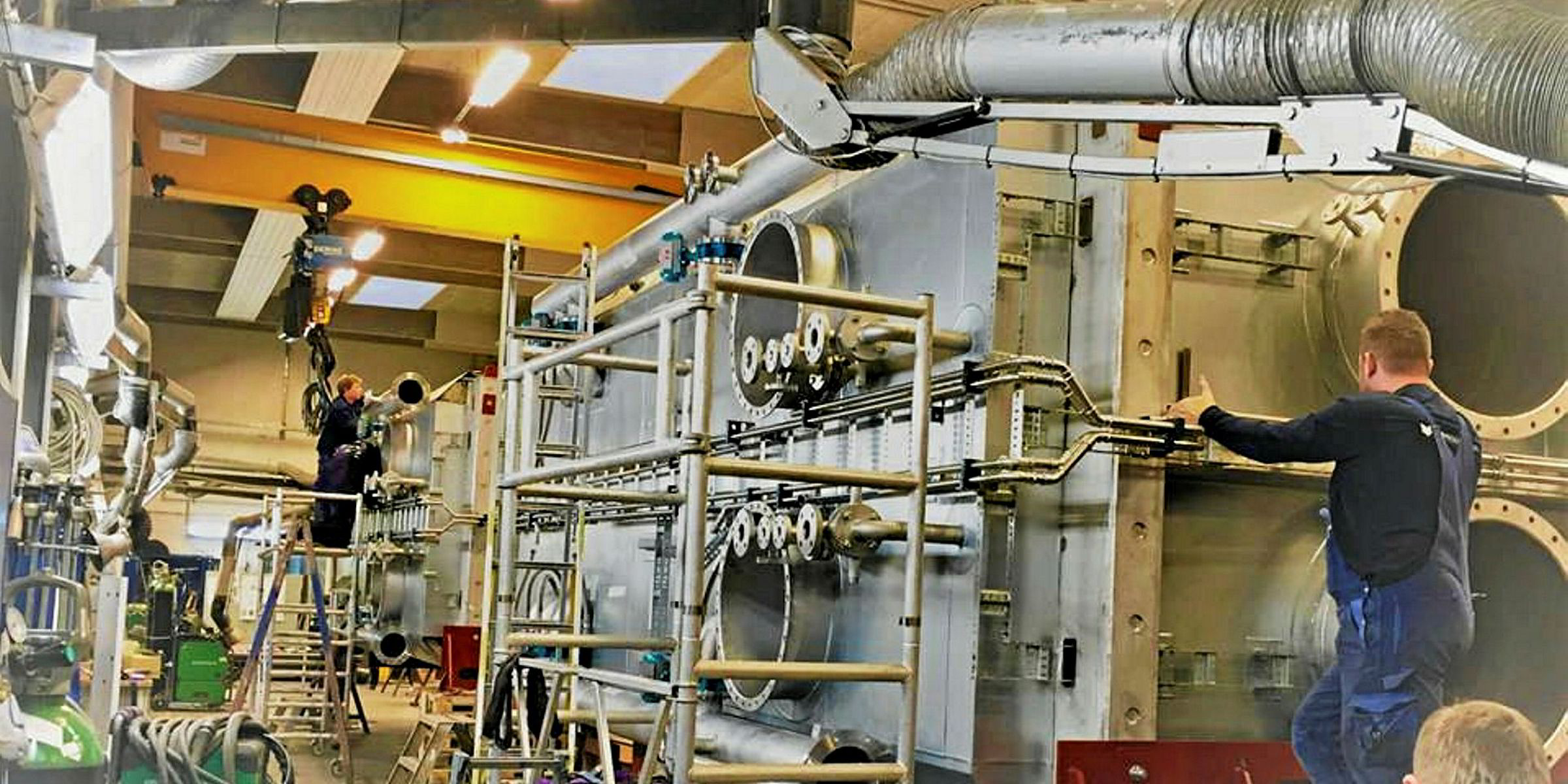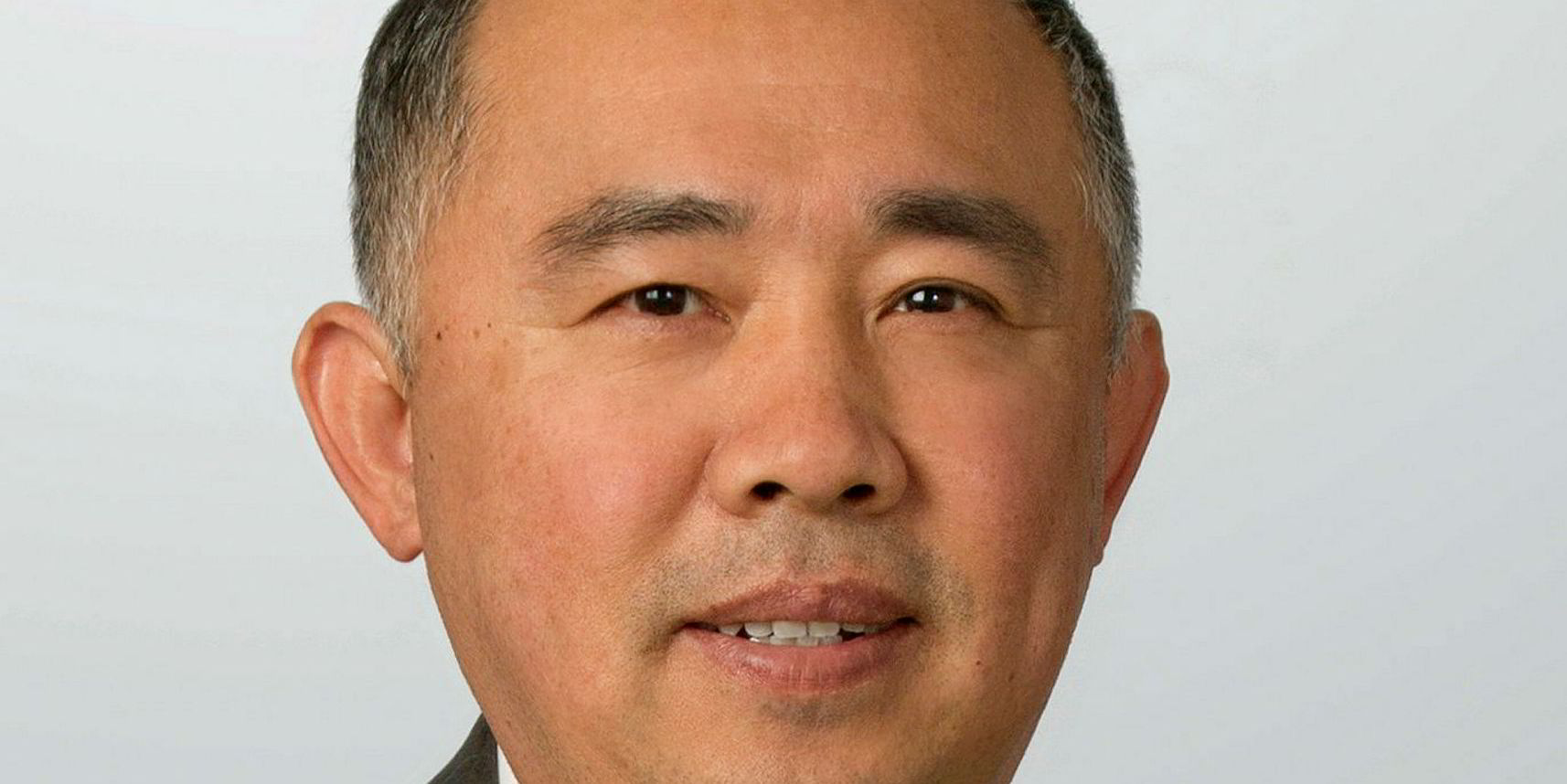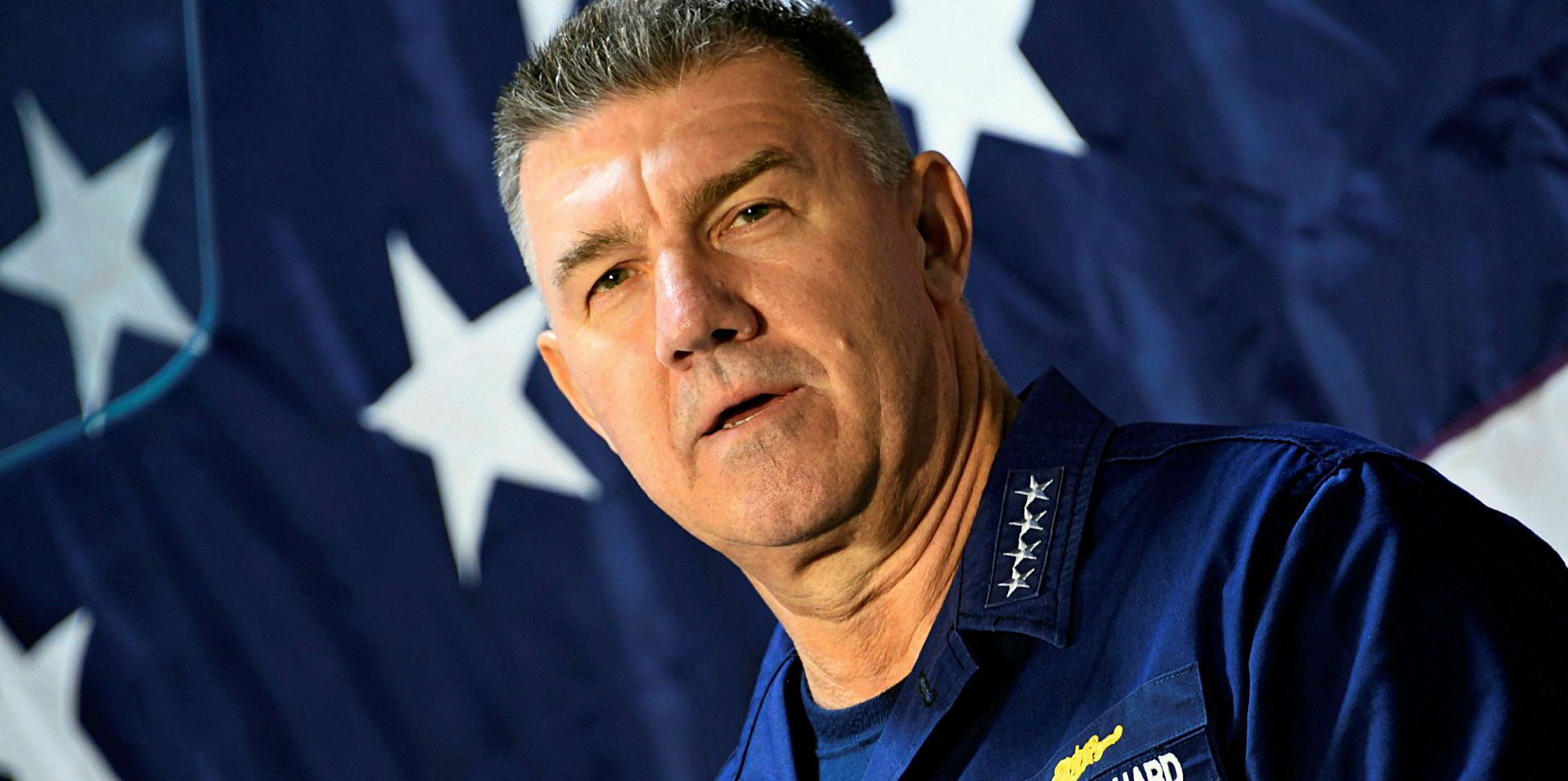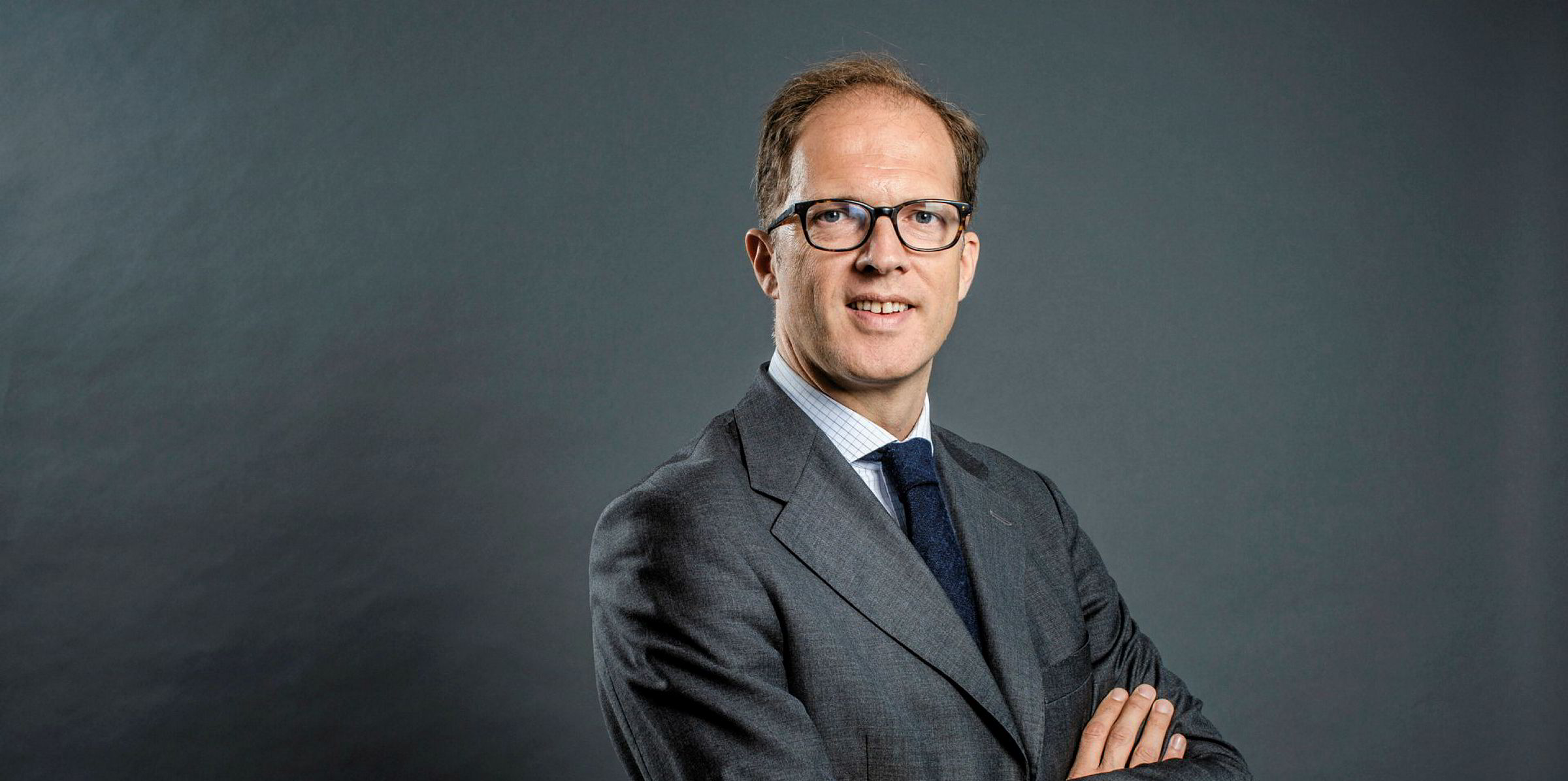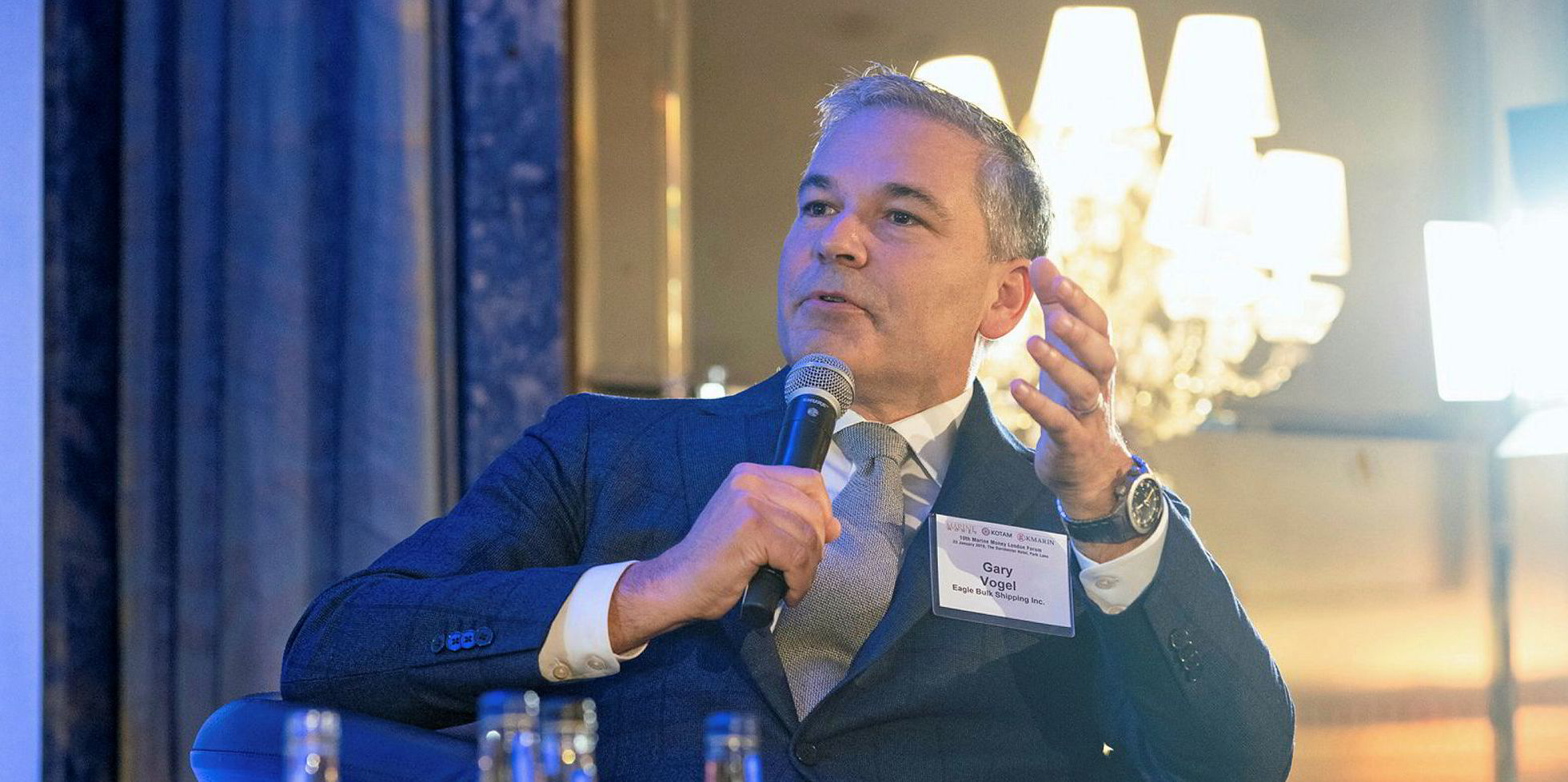The Clean Shipping Alliance 2020 has said it is developing a new type of open-loop exhaust gas scrubber to meet the IMO's carbon-reduction goals over the next three decades.
CSA 2020, a 2018-formed scrubber advocacy group, told TradeWinds that its new technology neutralises toxic metals in scrubber washwater effluent before they are dumped into the ocean.
It works by running ship exhaust through a fluidised bed of ceramic balls containing the semi-precious stone tourmaline within the scrubber, CSA 2020 executive director Ian Adams said.
Filtering microplastics
"It has also been suggested that EGCS [exhaust gas cleaning systems] combined with a filtration system could remove other pollutants, such as microplastics," he told TradeWinds.
The CSA is are not alone in betting on innovation to figure it out how to meet the pending IMO goals of cutting greenhouse gas emissions by 40% by 2030, compared with 2008 levels, and halving them by 2050.
Royal Caribbean Cruises is among them. Spokesman Jonathan Fishman told TradeWinds: “To reduce carbon emissions, RCL [Royal Caribbean Cruises] has already implemented a number of energy efficiency measures and has begun to look at alternative technologies and fuels to continue our efforts towards the IMO 2050 and beyond targets.”
Safe Bulkers, which has plans to fit scrubbers on 15 vessels within its 41-ship fleet, also expects innovation to deliver.
President Loukas Barmparis said: “Safe Bulkers is participating in programmes with the aim to understand the new frontiers for future vessels. Being always in the forefront of environmental protection, [Safe Bulkers] intends to comply at all times with the rules and regulations, and will use the scrubbers as long as it is financially viable.”
Star Bulk Carriers is also putting its faith in tomorrow to come up with fresh solutions.
“We do not know yet what technologies will need to be adopted to meet the 2030 regulations,” Star Bulk president Hamish Norton told TradeWinds. “I assume that any solution to the 2030 regulations will address air emissions in a holistic way.”
Star Bulk has viewed scrubbers as a temporary way to meet present and future IMO mandates, but Norton said it also had an eye on how it will keep pace of the regulations.
"By 2030, and to a greater extent by 2050, new technologies will be needed," he said. "We are doing our best to stay abreast of all developments relating to reducing [the] energy consumption of ships and low and zero-carbon fuels."
'No fleeting fix'
But US-based scrubber manufacturer CR Ocean Engineering believes the technology is here to stay. Chief operating officer Nick Confuorto refuted critics who decry scrubbers as a "fleeting fix".
"'Temporary' was being said about scrubbers when shipping did not really know much about scrubbers, and when it seemed that LNG was going to be the save-all fuel," he told TradeWinds.
"We started supplying scrubbers almost 60 years ago and we still consider them as the way to go forward for industry and for shipping."
He said scrubber manufacturers can and will modify the devices as needed to meet any IMO rules, including the upcoming 2030 and 2050 greenhouse gas reduction targets.
"The shipowners who invest in scrubbers will be a step ahead of their competitors for many years until their competitors also have scrubbers," he said.
"I don’t see a reason for IMO to forbid scrubbers, based on nothing more than hysteria hyped up by some anti-scrubber factions."
